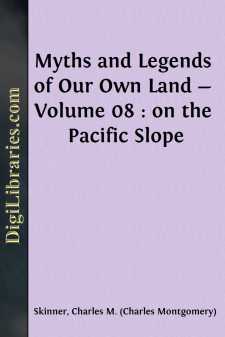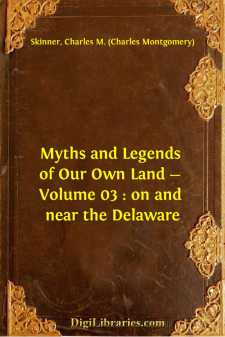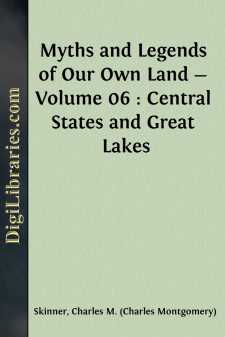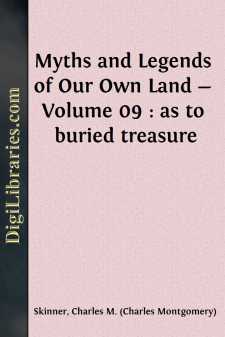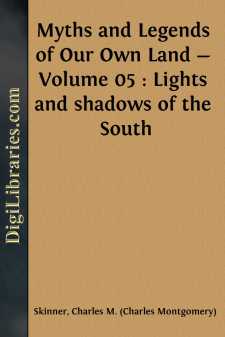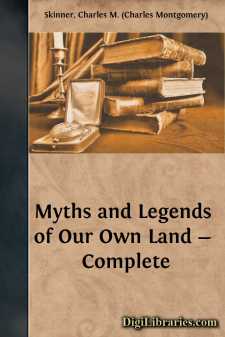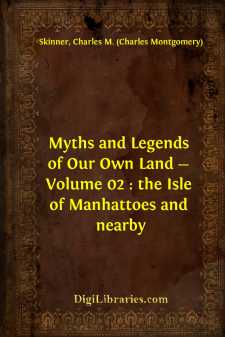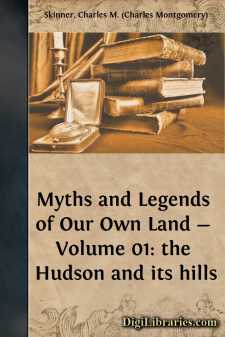Categories
- Antiques & Collectibles 13
- Architecture 36
- Art 48
- Bibles 22
- Biography & Autobiography 813
- Body, Mind & Spirit 142
- Business & Economics 28
- Children's Books 17
- Children's Fiction 14
- Computers 4
- Cooking 94
- Crafts & Hobbies 4
- Drama 346
- Education 46
- Family & Relationships 57
- Fiction 11829
- Games 19
- Gardening 17
- Health & Fitness 34
- History 1377
- House & Home 1
- Humor 147
- Juvenile Fiction 1873
- Juvenile Nonfiction 202
- Language Arts & Disciplines 88
- Law 16
- Literary Collections 686
- Literary Criticism 179
- Mathematics 13
- Medical 41
- Music 40
- Nature 179
- Non-Classifiable 1768
- Performing Arts 7
- Periodicals 1453
- Philosophy 64
- Photography 2
- Poetry 896
- Political Science 203
- Psychology 42
- Reference 154
- Religion 513
- Science 126
- Self-Help 84
- Social Science 81
- Sports & Recreation 34
- Study Aids 3
- Technology & Engineering 59
- Transportation 23
- Travel 463
- True Crime 29
Myths and Legends of Our Own Land - Volume 08 : on the Pacific Slope
Categories:
Description:
Excerpt
THE VOYAGER OF WHULGE
Like the ancient Greeks, the Siwash of the Northwest invest the unseen world with spiritual intelligence. Every tree has a soul; the forests were peopled with good and evil genii, the latter receiving oblation at the devil-dances, for it was not worth while to appease those already good; and the mountains are the home of tamanouses, or guardian spirits, that sometimes fight together—as, when the spirits of Mount Tacoma engaged with those of Mount Hood, fire and melted stone burst from their peaks, their bellowing was heard afar, and some of the rocks flung by Tacoma fell short, blocking the Columbia about the Dalles.
Across these fantastic reports of older time there come echoes of a later instruction, adapted and blended into native legend so that the point of division cannot be indicated. Such is that of the mysterious voyager of the Whulge—the Siwash name for the sound that takes the name of Puget from one of Vancouver's officers. Across this body of water the stranger came in a copper canoe that borrowed the glories of the morning. When he had landed and sent for all the red men, far and near, he addressed to them a doctrine that provoked expressions of contempt—a doctrine of love.
To fight and steal no more, to give of their goods to men in need, to forgive their enemies,—they could not understand such things. He promised—this radiant stranger—to those who lived right, eternal life on seas and hills more fair than these of earth, but they did not heed him. At last, wearying of his talk, they dragged him to a tree and nailed him fast to it, with pegs through his hands and feet, and jeered and danced about him, as they did about their victims in the devil-dance, until his head fell on his breast and his life went out.
A great storm, with thunderings and earthquakes! They took the body down and would have buried it, but, to! it arose to its feet, as the sun burst forth, and resumed its preaching. Then they took the voyager's word for truth and never harmed him more, while they grew less warlike as each year went by until, of all Indians, they were most peaceable.
TAMANOUS OF TACOMA
Mount Tacoma has always been a place of superstitious regard among the Siwash (Sauvage) of the Northwest. In their myths it was the place of refuge for the last man when the Whulge was so swollen after long rain that its waters covered the earth. All other men were drowned. The waves pursued the one man as he climbed, rising higher and higher until they came to his knees, his waist, his breast. Hope was almost gone, and he felt that the next wave would launch him into the black ocean that raged about him, when one of the tamanouses of the peak, taking pity on him, turned his feet to stone. The storm ceased, and the waters fell away. The man still stood there, his feet a part of the peak, and he mourned that he could not descend to where the air was balmy and the flowers were opening. The Spirit of all Things came and bade him sleep, and, after his eyes were closed, tore out one of his ribs and changed it to a woman....


